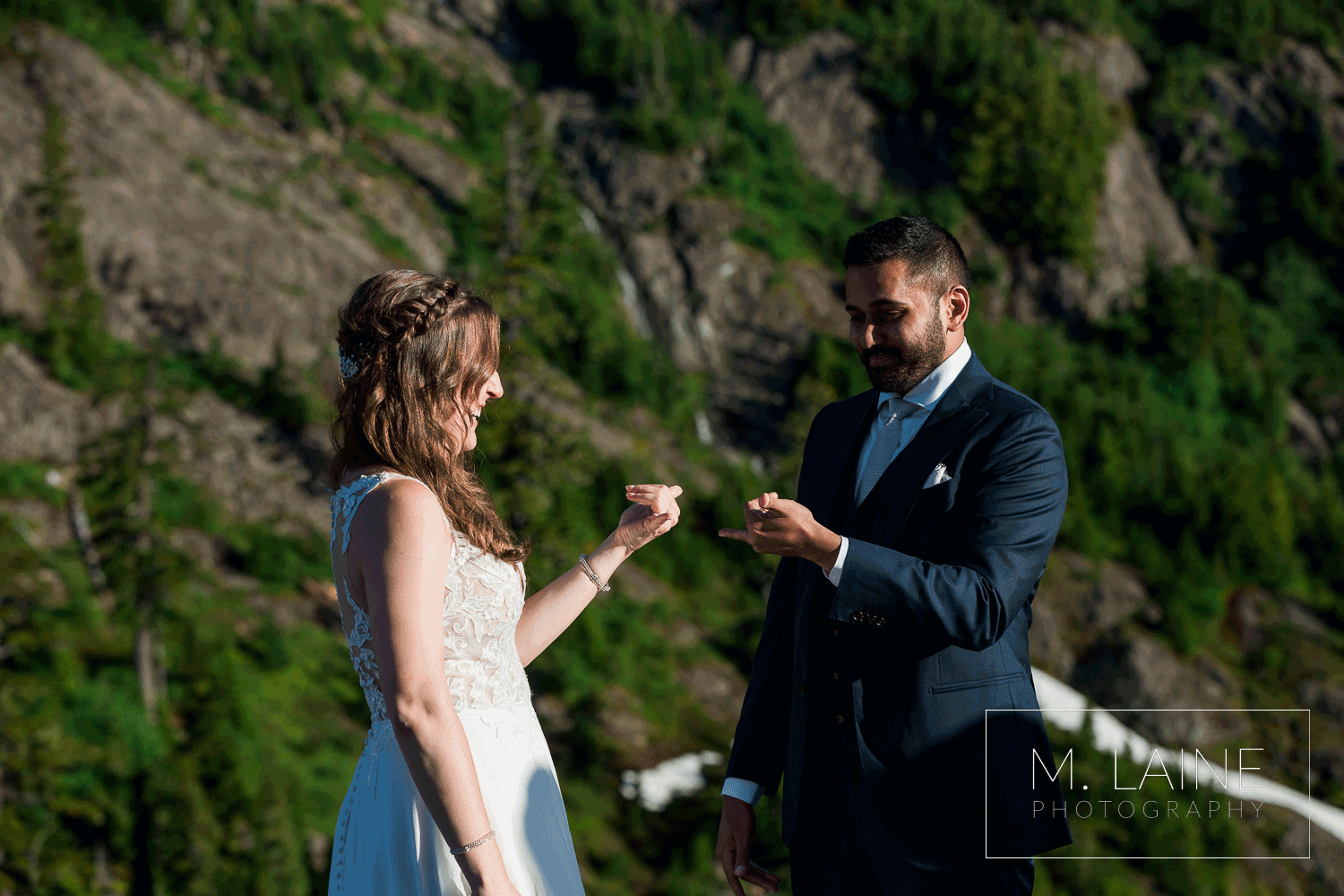Elopement Ceremonies; Tips, Ideas, Guests, and Etiquette
Adventure elopements have been shaking up the wedding industry for the last few years. One of the best parts? There are no rules to them. This is great and fun when dreaming, but unpractical when wading through an overwhelming number of options.
Use this blog as your starting point and your ceremony plans will begin to take shape!
Elopement tips
There are many things to consider when eloping. How will you fill your elopement day? What kind of vendors should you be looking for and what haven’t you thought of yet?
These questions are answered in the links below:
Elopement timeline and planning tips
What are the Leave No Trace Principles and why do they matter?
How to find the best dress or suit for an adventure elopement
Elopement ideas
Ceremonies
Elopement ceremonies typically last between 15 and 30 minutes. You can start your ceremony by walking down the aisle to your partner or by deciding to start your ceremony in the same space together.
How your ceremony will happen is up to you. You can write your own vows, self-solemnize, or have a friend or hired officiant walk you through your vows.
However, what should you do during your ceremony aside from exchanging vows, rings, and a kiss? Anything you’d like to personalize the ritual or keep it sweet and simple — do what feels right to you. Below, Kasey and Yashas finished their ceremony with their secret handshake.
Common unity ceremonies include:
If you’re interested in adding more to your ceremony, consider doing a unity ceremony. A unity ceremony is a simple act that symbolizes two lives becoming entwined.
Pouring sand
Handfasting
Lighting a candle together
Pouring wine or beer together
Planting a tree together
Pouring sand
Handfasting
Various traditions by background:
Those with a close connection to their heritage may choose to include more cultural traditions. If you’re interested but unfamiliar with these, please research the origin and meaning of each before including them in your ceremony.
Scottish and Celtic: Quaich ceremony or oathing stones
African, Scottish, Welsh, and other countries: Jumping the broom
Jewish: Signing a Ketubah, circling, sharing wine, breaking glass, and sharing a Yichid
Indian: Ganesh prayers, exchanging jai mala garlands, and throwing Talambralu
Mexican, Filipino, Spanish: lasso ceremony
Indigenous communities: Sage smudging
Untraditional ceremony ideas
There are also more untraditional and religious rituals to choose from as well. Take these ideas and make them your own.
Ring warmings
Exchanging gifts
Reading letters or watching videos sent from loved ones
Praying together
Enjoying a moment of silence
Sharing a poem, scripture, or song
Making an anniversary capsule
Celebrations
The ceremony isn’t where your day should end. Plan something special to signify the importance of this day. This could be as simple as sharing a first dance, a meal, or dessert, or as wild as indulging in a new activity or your first sky dive/ski/hike/etc. as a married couple. Consider incorporating your shared interests and do something that excites your soul.
Elopement guests
Navigating loved ones' expectations, whether you’re planning on inviting them, or not, is often the most difficult part of eloping. Elopements typically include 20 people or less, but you also have the option of not inviting anyone at all. There are still many ways you can include your loved ones, regardless of if they’ll be present or not, but telling them about your plans can be tricky, so read this blog before you do.
If you are inviting others to join you, be aware if they have any special needs or limitations and take those into consideration while you’re planning. You’ll also need to put effort into educating your guests on how your elopement will differ from a traditional wedding. They may need better walking shoes than they’d wear to a typical wedding, more layers to wear as the temperatures change throughout the day, and directions on paying park entrance fees, or where to find the nearest lodging.
Elopement etiquette
As elopements are becoming more common and modernized, etiquette has become a common concern. Unlike a traditional wedding, the pre-wedding parties like wedding showers, and bachelor/bachelorette parties aren’t common since anyone who attends these is traditionally expected to receive an invitation to the wedding. If loved ones offer to host a get-together or shower for you, do make sure expectations are clear.
Many couples choose to host a larger sendoff or reception in order to allow more of their loved ones to be able to celebrate with them. Although this is fun, it’s totally optional and there is no predetermined etiquette for this.
Browse the archive or search for specific topics (try “Olympic National Park”, “mountains” or “LGBTQ+”).




















